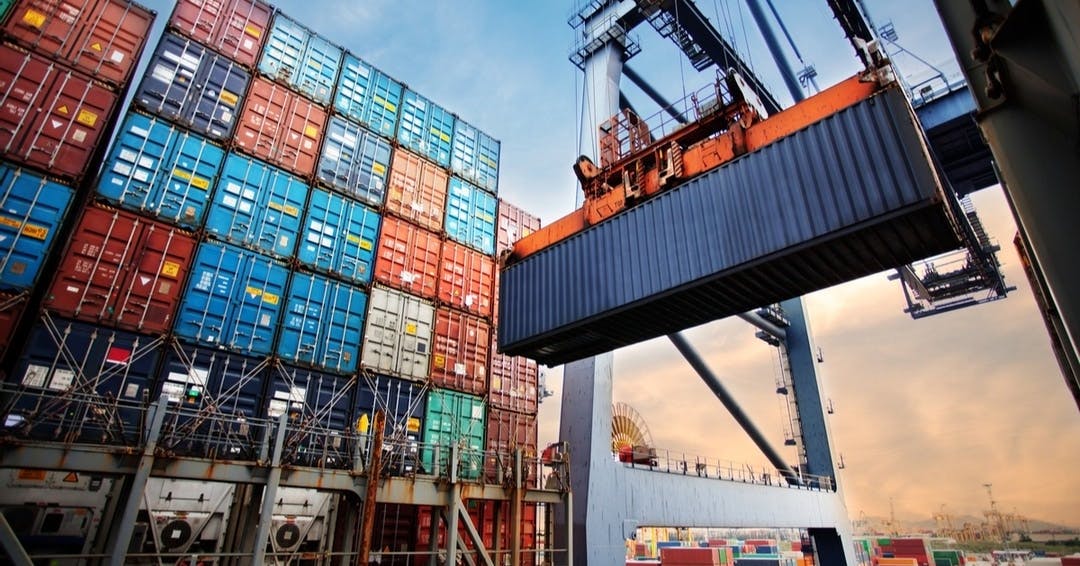Online container tracking is an efficient way for the many parties involved in the movement of goods to stay informed. However, container tracking online depends on reliable data, seamlessly accessed and exchanged by all who need it. Without digital standards providing a common language and framework for information exchange, shipping partners can struggle to track and trace shipments using a range of digital platforms. What are the challenges of current tracking methods in shipping?Container shipping operations are complex, with many stakeholders. The smooth running of supply chains depends on timely, accurate information exchange. Without it, ports can become congested, fleets can find themselves out of position and goods can be held up in the system. This potential disruption is mitigated through planning and operational processes. However, manual processes and unstandardised data still dominate container shipping’s operations and that hampers effective information exchange. KPMG predicts that organisations will need a focus on “mining relevant, clean and well-governed data” to get the most from technology investments in 2024. Indeed, it goes on to state that, “data availability, quality, cadence, and consistency – are now critical considerations.”Understandably, supply chain partners are turning to prediction and detection technologies, including those powered by AI, to support track and trace, planning and operational execution. Technology, and the digitalisation of processes in general, is indeed central to container shipping’s future, but layering solutions onto a foundation of unstandardised data can only improve matters so far. Without standards, only partners that have been onboarded onto the same platforms, set up to communicate with one another, can exchange digital information. Organisations involved in container shipping manage many relationships - they don’t want to implement multiple platforms. Doing so is expensive and takes considerable time. How can we overcome these challenges? Digitalisation, together with the implementation of standards for information exchange, can simplify and speed up container shipping processes, including those involved in container tracking. Open-source standards can provide a common data language and process frameworks to help the industry move towards seamless information exchange. Then, supply chain partners can exchange data regardless of the technology platforms they each use. It is this interoperability that will accelerate progress. Container tracking online becomes simpler and more attainable when partners can set up communication pathways quickly and access the data they need, when they need it. Application programming interface (API)-based standards take online container tracking further still. They equip shippers, for example, to query carriers’ systems dynamically, or subscribe to receive status updates. That way, shippers needn’t wait for carriers to notify them if something happens, such as a delay that will affect their shipments. Then, they can work to mitigate the impact such an event will have. What are the advantages of moving to a digital and online container tracking system?Universal access to accurate, real-time data helps the entire container shipping industry become more agile, resilient to change and responsive to customer demand and market forces.The complex interactions that keep international trade moving depend on information exchange and when this is difficult, slow or of low quality, the experience is poor and supply chains can be inefficient.Let’s consider a container’s journey. It becomes lost from view until it arrives at certain points. It is difficult for the cargo owner to track and trace their shipment because transport chains often appear as ‘black boxes’.Standards-based digital information exchange enables container tracking online because data is sent and received machine-to-machine in a way that everyone can understand and use. That way, shippers and other supply chain participants gain visibility into a container’s whereabouts and its status throughout its journey. The challenges of going digitalDigitalisation, and interoperable digitalisation, is a significant operational and mindset shift for all parties involved in container shipping. The will is often there, but it requires a collaborative effort because so many links in the chain need to make the change.Supply chain partners must find a way to alleviate technology, platform and interoperability concerns. These concerns can include a lack of understanding about security and technology aspects, platform choices or costs.Organisations may be hesitant to move forward with online container tracking because they do not want to ‘choose wrong’ on track and trace solutions. Shippers may look to carriers, and carriers look to shippers, to make the first move so that all parties align on a digital way forward. It is only through collaboration that effective digital processes will streamline container shipping operations. What do we need to do to make this happen?DCSA develops digital standards to address technology, platform and interoperability concerns, so that industry players can move forward with confidence when they digitise.When data is harmonised across shipping terminology, processes and definitions, cargo information can travel unhindered for improved visibility, informed decision-making and enhanced business performance.DCSA collaborates with carriers, shippers, associations and other stakeholders to establish a foundation for seamless, end-to-end information exchange in container shipping. DCSA’s standards enable a common technology foundation to make shipping services easy to use, flexible, efficient and reliable.For cargo visibility, DCSA published track and trace standards. These comprise a common set of processes, as well as data and interface standards, that carriers, shippers and third parties can implement to enable shipment tracking so that supply chain participants can communicate digitally, in a unified way.As with all DCSA’s standards, track and trace is solution agnostic, and therefore interoperable, to equip supply chain partners with information on cargo transportation, regardless of which technologies and systems they use.The standards are aligned with the UN/CEFACT (United Nations Centre for Trade Facilitation and Electronic Business) standards and support all identified events when data is exchanged across five general shipment phases:
- Pre-shipment
- Pre-ocean
- Ocean
- Post-ocean
- Post shipment.
